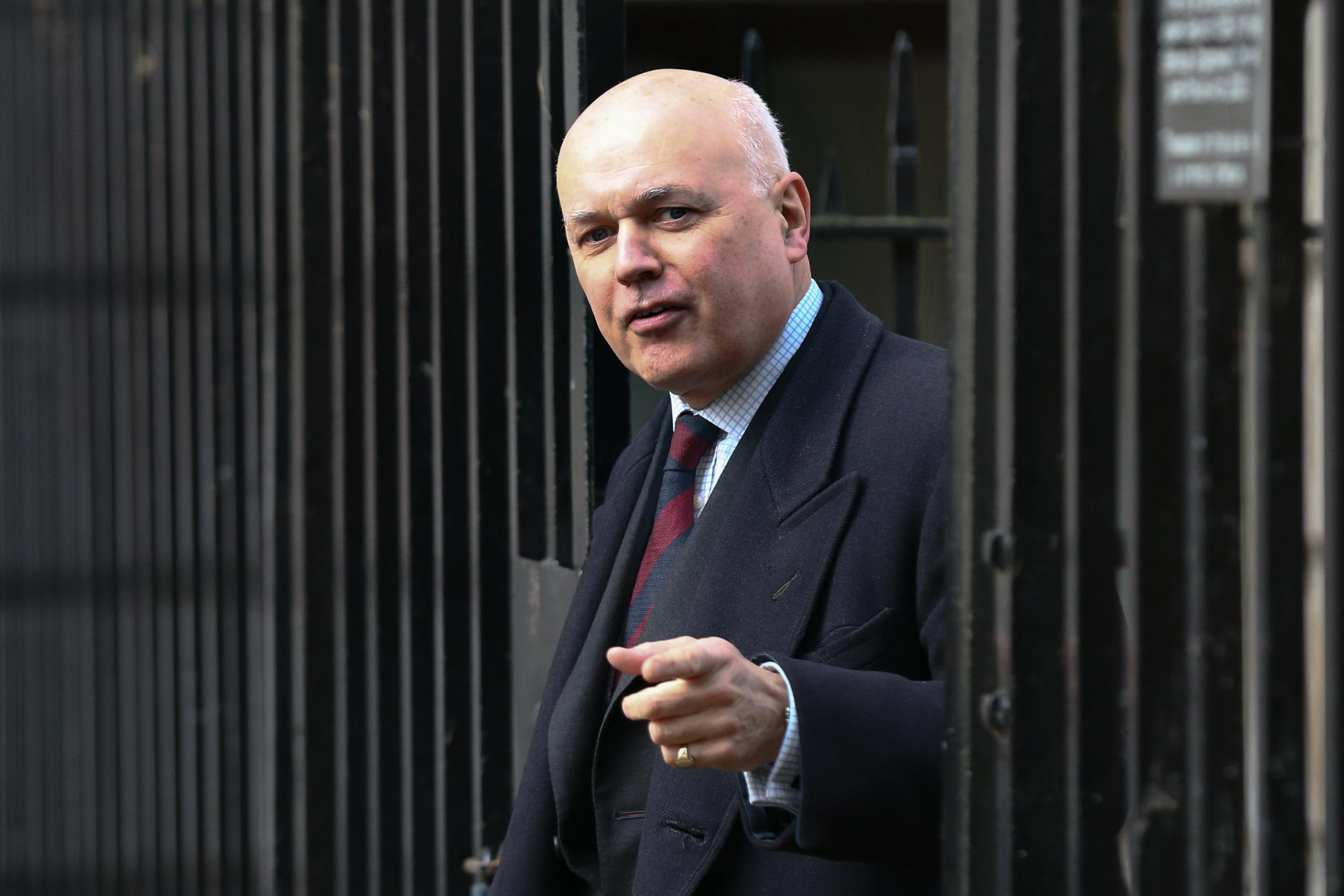Your support helps us to tell the story
This election is still a dead heat, according to most polls. In a fight with such wafer-thin margins, we need reporters on the ground talking to the people Trump and Harris are courting. Your support allows us to keep sending journalists to the story.
The Independent is trusted by 27 million Americans from across the entire political spectrum every month. Unlike many other quality news outlets, we choose not to lock you out of our reporting and analysis with paywalls. But quality journalism must still be paid for.
Help us keep bring these critical stories to light. Your support makes all the difference.
Unspecified “elites” shut down debate on the issue of immigration, a Cabinet minister and former leader of the Conservative party has said.
In an interview with the Today programme Iain Duncan Smith said even a mere “mention” of immigration in previous years had led to the speaker being immediately labeled as a racist.
“For far too many years what’s happened is that in a sense the elites have said it’s terrible to talk about immigration, and if you do you’re racist. They shut down the debate for many years,” he told the programme.
“I can even remember back when Tony Blair was prime minister to even mention immigration was to be accused of being a racist, if you talked in terms about asylum seekers.
“That accusation probably silenced legitimate discussion. It mean that if you do that what happens is you push this debate to the margins - which what you’re seeing in Europe. Then political parties with very poor intentions and nasty motives take control.”
Jonathan Portes, principal research fellow at the National Institute of Economic and Social Research, described Mr Duncan Smith’s comments as an “astonishing rewriting of history”.
The Cabinet minister’s claim came in response to a the Archbishop of Canterbury arguing that it was “outrageous” to say people worried about immigration were racist.
The Christian cleric told Parliament’s internal House magazine that there was a “genuine fear” of foreigners when it came to their impact on health services, jobs, and housing.
“In fragile communities particularly - and I've worked in many areas with very fragile communities over my time as a clergyman - there is a genuine fear: what happens about housing? What happens about jobs? What happens about access to health services?” he said.
A major study by the London School of Economics published last year found that immigration had not overall reduced wages or increased unemployment.
Academics at the University of Oxford conducted research into the impact of immigration on the NHS and found that areas with higher foreign-born populations had lower waiting times than areas with low foreign immigration.
An analysis by the National Housing Federation published in October last year concluded that “migration has not resulted in a disproportionate allocation of social rented homes to newly arriving migrants” and that a higher proportion of foreign nationals live in the private rented sector.
Subscribe to Independent Premium to bookmark this article
Want to bookmark your favourite articles and stories to read or reference later? Start your Independent Premium subscription today.

Join our commenting forum
Join thought-provoking conversations, follow other Independent readers and see their replies
Comments